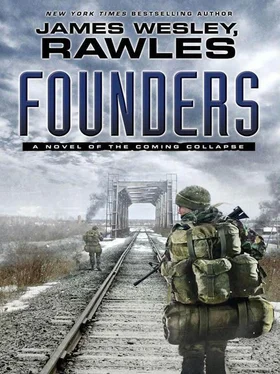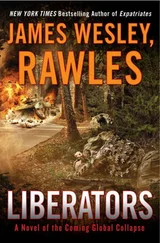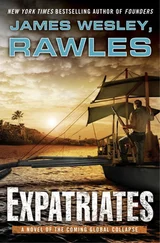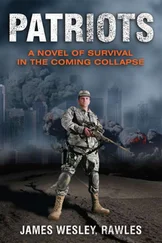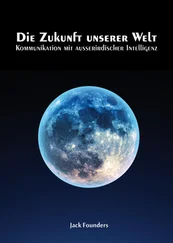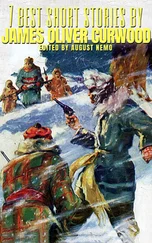James Rawles - Founders
Здесь есть возможность читать онлайн «James Rawles - Founders» весь текст электронной книги совершенно бесплатно (целиком полную версию без сокращений). В некоторых случаях можно слушать аудио, скачать через торрент в формате fb2 и присутствует краткое содержание. Город: New York, Год выпуска: 2012, ISBN: 2012, Издательство: Emily Bestler Books, Жанр: sf_postapocalyptic, на английском языке. Описание произведения, (предисловие) а так же отзывы посетителей доступны на портале библиотеки ЛибКат.
- Название:Founders
- Автор:
- Издательство:Emily Bestler Books
- Жанр:
- Год:2012
- Город:New York
- ISBN:978-1-4391-7282-7
- Рейтинг книги:5 / 5. Голосов: 1
-
Избранное:Добавить в избранное
- Отзывы:
-
Ваша оценка:
- 100
- 1
- 2
- 3
- 4
- 5
Founders: краткое содержание, описание и аннотация
Предлагаем к чтению аннотацию, описание, краткое содержание или предисловие (зависит от того, что написал сам автор книги «Founders»). Если вы не нашли необходимую информацию о книге — напишите в комментариях, мы постараемся отыскать её.
Founders — читать онлайн бесплатно полную книгу (весь текст) целиком
Ниже представлен текст книги, разбитый по страницам. Система сохранения места последней прочитанной страницы, позволяет с удобством читать онлайн бесплатно книгу «Founders», без необходимости каждый раз заново искать на чём Вы остановились. Поставьте закладку, и сможете в любой момент перейти на страницу, на которой закончили чтение.
Интервал:
Закладка:
Because the front forty acres of the property were perimeter-fenced and cross-fenced for cattle, it was easy enough to simply keep the front gate chained shut and padlocked.
A great source of fear and confusion was when strangers would approach the farm, hoping to barter. Since the Laytons were new to the farm and didn’t recognize neighbors and acquaintances of the Perkinses, this caused a number of false alarms. By December, this problem was largely resolved by Durward bartering only through two trusted middlemen.
The Perkinses had two young daughters, ages three and five. Out of diapers, but not yet school age, their lives was relatively carefree, concerned only with dolls, coloring books, and “helping Mommy” in the kitchen.
The Perkinses were members of a Society of Friends church that met on North 6th Street. The local church’s “Yearly Meeting” doctrine remained conservative and relatively pacifistic. But the Laytons were not surprised to see that the Perkinses and the other Quakers they met always had guns close at hand. Following the Crunch, the local church clarified that their stand on pacifism mainly involved foreign wars, rather than self-defense, which they declared “a matter of personal conscience.”
Once a month, weather permitting, Durward filled in for the Laytons so that they could attend Mass at the St. Bernadette Parish in West Branch, on East Orange Street. It was a two-and-a-half-mile walk, so the “Mass trips” were a six-hour exercise. Ken and Terry treated these as very special occasions. On the preceding Saturdays, Terry would give Ken a haircut and beard trim. The long walks to and from church were the only times that they had to talk with each other at length, aside from lingering together at the change of each OP shift.
Even with the combined membership of St. Joseph church in West Liberty, only about thirty people attended on average. For most, it was simply too far to travel in a world without gasoline, or people didn’t want to risk leaving their houses unguarded.
At first it seemed odd seeing nearly all of the adults armed with rifles, handguns, or shotguns. One congregant regularly carried a Saiga 12 shotgun in a Kushnapup bullpup stock with a ten-round detachable magazine. Another had a Kel-Tec RFB .308 rifle—also a bullpup. Those were considered status symbols. And some of the congregants assumed that Ken and Terry were wealthy because they carried both black rifles and Colt .45 automatics.
They soon learned the new norm of sitting widely spaced apart, to leave room for guns on the pews. Ken joked that the new order of worship was “Sit, stand, kneel, sit, stand, kneel, and sling arms .” The church was very dimly lit—the only light came in through the stained glass windows. Without enough light to read by except on sunny days, the hymns were sung by memory, rather than from reading the Novus Ordo Modern Missal. They often remarked that this lighting made the services seem medieval. Ken and Terry missed the Latin Mass, but Terry quipped, “Perhaps that would make it seem too medieval, now that we’re back in the Dark Ages.”
Radcliff, Kentucky
November, the First Year
It was common knowledge that Washington, D.C., was in ruins. The ProvGov filled the power vacuum left when the East Coast had a massive die-off, in part due to an influenza pandemic that particularly struck the eastern seaboard from New York to Charleston in the first winter of the Crunch. The new government rapidly spread out, “pacifying” territory in all directions. Any towns that resisted were quickly crushed. The mere sight of dozens of tanks or APCs was enough to make most townspeople cower in fear. What it couldn’t accomplish through intimidation, the ProvGov accomplished with bribes.
The ProvGov soon began issuing a new currency. Hutchings administration cronies spent the new bills lavishly. Covertly, some criminal gangs were hired as security contractors and used as enforcers of the administration’s nationalization schemes. Some of these gangs were given military vehicles and weapons and promised booty derived from eliminating other gangs that were not as cooperative. Hit squads were formed to stifle any dissent. These did so through abductions, arson, and murder. Nobody was ever able to prove a link, but an inordinately large number of conservative, pro-sovereignty members of Congress from the old government disappeared or were reported killed by bandits.
Some foreign troops were clothed in U.S. ACU digital or OCP camouflage. But most foreign troops stayed in their national uniforms, and were used as shock troops to eliminate any pockets of resistance. Disaffection with the new government smoldered everywhere they went to pacify.
Within the first three months of launching the new government, Hutchings was in contact via satellite with the UN’s new headquarters in Brussels to request peacekeeping assistance. (The old UN Building in New York had burned, and the entire New York metropolitan region was nine-tenths depopulated and controlled by hostile gangs.) Hutchings had at first naively assumed that the UN’s assistance would be altruistic, with no strings attached. It was only after the first UN troops started to arrive in large numbers that it became clear that UN officers would control the operation. Eventually, Hutchings became little more than a figurehead. The UN administrators held the real power in the country. They had their own chain of command that bypassed the Hutchings administration, and they had direct control over the military.
One closely guarded secret was that Maynard Hutchings had signed an agreement that promised a payment of thirty metric tons of gold from the Fort Knox Depository to defray the costs of transporting and maintaining a mixed contingent of UN peacekeepers, mostly from Germany, Holland, and Belgium. The gold was shuttled out of the country in half-ton increments in flights from Fort Campbell, Kentucky. There had also been the offer of Chinese peacekeeping troops, but Hutchings insisted that no Asian or African troops be used on American soil, saying, “I want it to be all white fellas that’ll blend in.”
12. Terminal Ballistics
“Whoever looks upon them merely as an irregular mob will find himself much mistaken. They have men among them who know very well what they are about, having been employed as rangers against the Indians and Acadians; and this country being much covered with wood and hilly is very advantageous for their method of fighting.”
—Hugh Percy, 2nd Duke of Northumberland, from a letter written from America, April 20, 1775West Branch, Iowa
Late November, the First Year
Early one morning, shortly after sunrise, Terry idly rolled a Mason jar of cream beneath her boot, churning it. Sitting in the cupola atop the silo, she was enjoying some unusually clear weather, but it was still bitter cold. There was some snow in the shady areas on the north sides of the buildings, left over from the last cold front. She wondered if it would all melt before the next front came in. Durward said the barometer was starting to fall, and that they could expect rain rather than snow in about thirty-six hours. In the month that they had been at the farm, Terry learned that Durward had a knack for predicting the weather, which was an important skill in a world that was deprived of the Weather Channel.
Terry saw a pair of full-size vans approaching on Charles Avenue from the north. Vehicle traffic had continued to gradually decrease since their arrival, so every passing vehicle had become an object of attention. The two vans slowed and then pulled up to the front gate. The trailing van was tucked up tight, yet the rear half of it protruded into the county road. That seemed odd.
Читать дальшеИнтервал:
Закладка:
Похожие книги на «Founders»
Представляем Вашему вниманию похожие книги на «Founders» списком для выбора. Мы отобрали схожую по названию и смыслу литературу в надежде предоставить читателям больше вариантов отыскать новые, интересные, ещё непрочитанные произведения.
Обсуждение, отзывы о книге «Founders» и просто собственные мнения читателей. Оставьте ваши комментарии, напишите, что Вы думаете о произведении, его смысле или главных героях. Укажите что конкретно понравилось, а что нет, и почему Вы так считаете.
